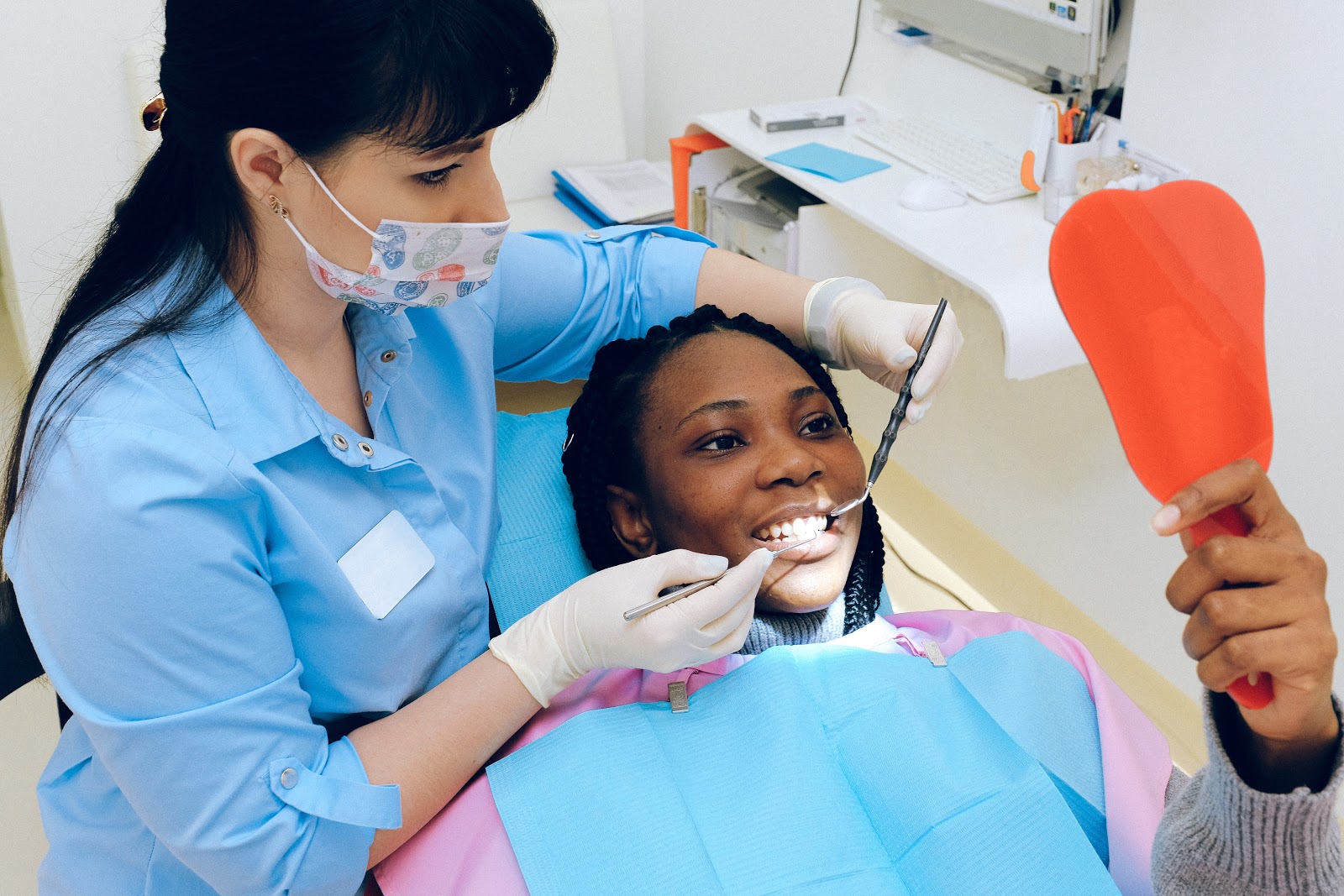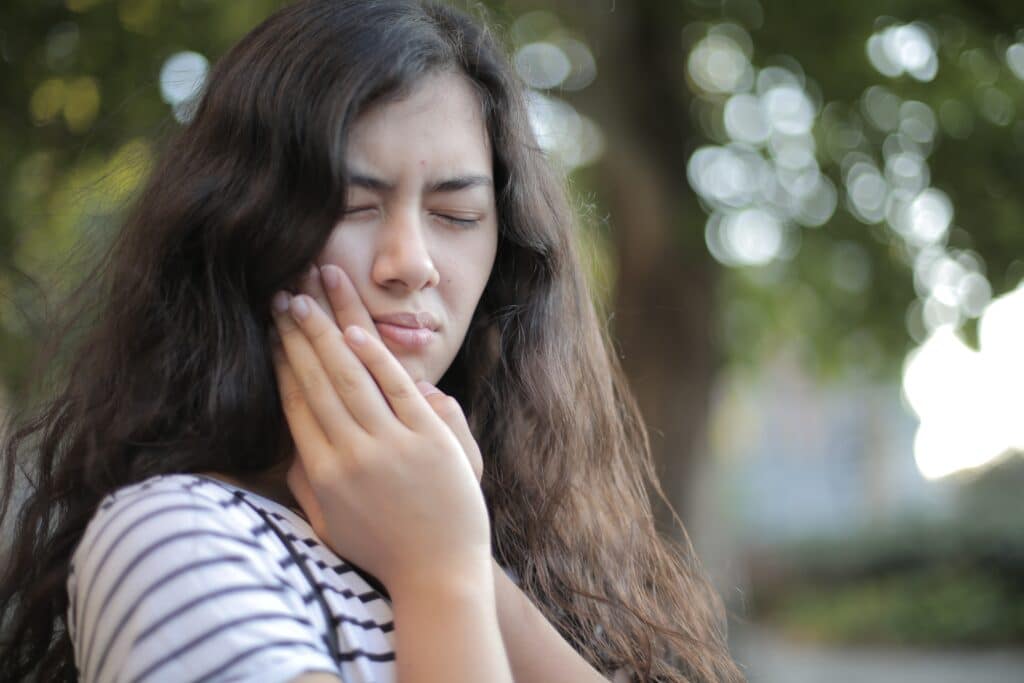Grinding teeth at night, known more formally as sleep bruxism, may be caused by a number of factors. If you are grinding your teeth at night, you may be unaware of it, and therefore only realize it after you have symptoms. This is why it is best to seek regular dental care. This article will explain the different symptoms of sleep bruxism and how to best prevent and treat it.
- Signs you are grinding your teeth
- How to take precautions against it
- How to deal with the aftermath of bruxism if you have the symptoms

There are a number of signs you are grinding your teeth
These are some symptoms to keep your eye out for
If you are clenching your teeth, it is probable that you are grinding them as well. Sometimes, the grinding and clenching is loud enough to wake your partner, so you can ask them if you think you are and they can confirm this. You may notice that your teeth are flattened, fractured, chipped, or loose. These are signs that you have been grinding your teeth in your sleep. Additionally, if your tooth enamel is worn, exposing deeper layers of your tooth, definitely consider it as a symptom of sleep bruxism.
Increased tooth pain or sensitivity can mean that you have been grinding your teeth without noticing, most likely at night.
A tired jaw or tight jaw muscles when you wake up can be a side effect of grinding your teeth at night. In addition, a locked jaw that won’t open or close completely is another sign of sleep bruxism. Jaw, neck, or face pain or soreness can be symptoms of sleep bruxism. While these may be caused by other reasons such as sleeping funny on your neck, a telltale sign of sleep bruxism is that your jaw is in pain when you awake. This can in turn cause pain in your neck as well as your face. If you have pain in your ear, but it’s not actually an earache, it could also mean that you have been grinding your teeth.
Another sign you have been grinding your teeth is that you have a dull headache starting in your temples. If you have damage from chewing on the inside of your cheek, this is yet another sign that you have been grinding your teeth. Lastly, you may experience sleep disruption, and this may be because you are grinding your teeth without realizing, which wakes you up in the middle of the night.

How to take precautions against grinding your teeth at night
If you think you suffer from sleep bruxism, here are some steps to prevent it in the future
There are many strategies to help you stop grinding your teeth. For starters, you can wear a nightguard. It won’t necessarily stop you from grinding, but it will protect your teeth. You can get one fitted by your dentist, and wear it over your top teeth. They are typically made from plastic, or acrylic. Make sure you wear it at night, and notice the change in your teeth in the morning.
Because stress is often a cause of bruxism, practicing ways of alleviating stress can only be a positive. One easy way to help reduce stress is by exercising. This can be either leisurely activities such as walking or yoga, or more intense workouts that make you work up a sweat. Either way, your stress will subside, in turn leading to less grinding at night. Also, work on reducing your stress right before you go to sleep. This can help in reducing the grinding during your restful hours.
One way to help relax before bedtime is to take a warm bath. Not only will it help you relax, but the warm water will help relax your jaw muscles before bedtime. If you’re not a fan of baths, soaking a washcloth in warm water, wringing it out, and applying it to your jaw will have the same positive effects. A heating pad will do the trick as well, although moist heat is best because it more easily penetrates through the skin.
Learning new habits is another way to help prevent sleep bruxism. For example, you may be grinding your teeth in the daytime as well, but you are able to notice it because you are conscious. If this is the case, actively change your habit. If you notice your jaw is clenched, relax it and make sure your teeth are apart. Your teeth should only be together when you are chewing or swallowing. After you relax your jaw, feel the muscles relax, and try to maintain the position.
Giving yourself a massage, both on your jaw as well as on other places that feel tense because of grinding your teeth, can have a couple benefits. First, it can continue to relax you, helping you to not grind in the future. Second, it can help your jaw feel better and relax those muscles that tense up when you are grinding your teeth. So give it a try!
Anxiety may be another source of why you are grinding your teeth, so seeking professional help to curb your anxiety can be another great way to prevent it in the future. Talking to a psychiatrist or psychologist in talk therapy can help alleviate some of the stress the anxiety is causing, in turn reducing grinding.
Avoiding alcohol or caffeine is another way to stop grinding. Grinding may get worse after ingesting these substances, so it may be best to avoid drinking wine or coffee in the evening.
Don’t chew on anything besides food, and skip chewing chewy foods. For example, if you chew on the back of your pen or pencil out of stress, avoid doing so in the future, for it can get your jaw used to clenching. Additionally, foods such as gum, steak, and popcorn can give your jaw additional stress, so avoid them to give your jaw a rest.
If you find yourself grinding your teeth at night, take these steps
You may have already tried the above steps and are still dealing with problems
Seek regular dental care to deal with the aftermath of grinding your teeth. While you may have already had your bruxism dealt with, regular dental visits can help prevent another bout of grinding your teeth. Grinding your teeth at night can be a pain both literally and figuratively. While it may take some time to change habits and get used to new routines, solving sleep bruxism is manageable and possible.

